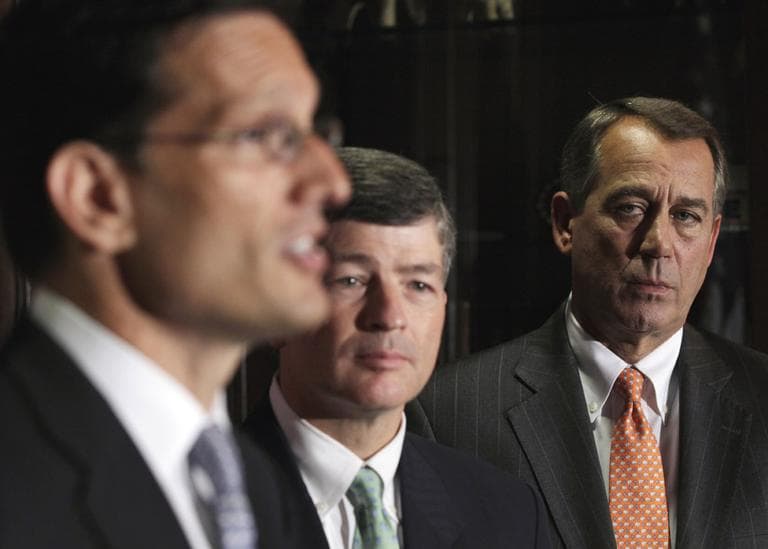Advertisement
As Debt Deadline Nears, 'Compromise' Still A Dirty Word
Resume
As the countdown to government insolvency continues, there is no sign of a deal to raise the nation's debt ceiling.
The high-stakes debate took another twist Monday, with dueling addresses to the nation by President Obama and House Speaker John Boehner.
"The American people may have voted for divided government, but they didn't vote for a dysfunctional government," President Obama said from the East Room of the White House.
Following the president's remarks, Speaker Boehner shot back, urging Obama to sign on to a GOP plan that would temporarily lift the nation's $14.3 trillion debt limit by cutting spending by at least $1.2 trillion. Under the proposal, the debt limit would immediately rise by $1 trillion. A second lift to the debt ceiling would occur next year, and be tied to the ability of a bipartisan Congressional commission to identify more spending cuts.
With the Aug. 2 debt deadline fast approaching, each party in the talks seems to be digging in their heels, hoping the other side will blink first. It might make for good politics, but it may not be the smartest negotiating tactic, according to Robert Bordone, a professor of law at Harvard University and director of the school's clinical program in negotiation and mediation.
If lawmakers would like to break the impasse, Bordone said, they may want to consider expanding the number of people at the negotiating table. What's key, he added, is including members of Congress who can help deliver votes.
"Bringing a complete spoiler to the table is problematic," Bordone said, "but shutting out people who can ruin your deal completely is also problematic."
Guest:
- Robert Bordone, director, Harvard Negotiation and Mediation Clinical Program
This segment aired on July 26, 2011.